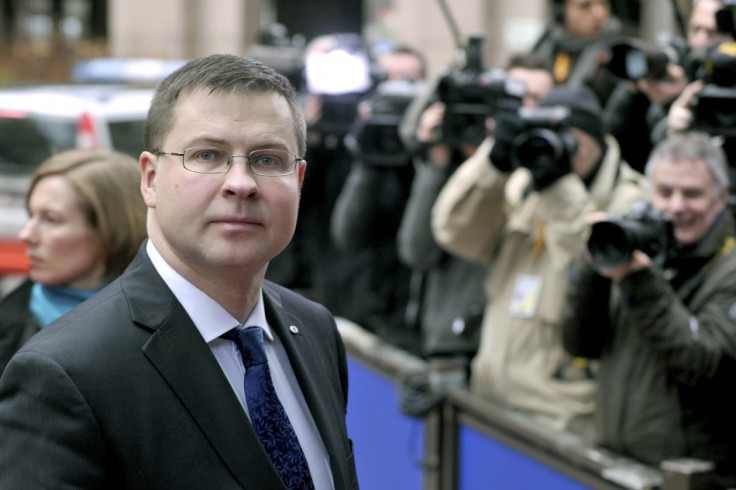Latvia Cabinet Approves Formal Application to Join the Euro

Latvia will prepare a formal application to join the Eurozone after a decade of pinning its currency to the Euro, the Baltic News Agency has reported.
Prime Minister Valdis Dombrovskis will submit the application Tuesday, the report said, following a key vote Monday in Cabinet that follows an impressive economic recovery for the Baltic economy since its near collapse during the global financial crisis. The European Union is expected to make a decision on the application by June. If approved, Latvia will become the 18<sup>th member of the European Union to adopt the currency.
Latvian lawmakers approved new rules on fiscal discipline in January that vow to keep government debt below 60 percent of GDP and enact automatic corrections if the debt rises past that benchmark. Parliament also approved measures that would allow both the existing lat and the euro to be in circulation for the first two weeks after Lativa's Eurozone entry, which Dombrovskis hopes will be on 1 January 2014.
Latvia recovered from one of the deepest recessions in the world following the financial crisis, which destroyed more than a fifth of its GDP, and managed to two consecutive years of 5 percent growth from 2011 to 2012 thanks in part to one of the most aggressive austerity programmes in Europe.
The European Commission said last week in its Winter Forecasts that Lativa's economy will likely grow by 3.8 percent this year and 4.1 percent in 2014 as inflation eases and unemployment dips from a 16.2 percent peak in 2011.
Some, however, have argued the growth masks structural issues of unemployment and inequality that continue to weigh on the nation of 2.2 million. Nobel Laureate economist Paul Krugman wrote in his "Conscience of a Liberal" blog in the New York Times that "while Latvia's willingness to endure extreme austerity is politically impressive, its economic data don't support any of the claims being made about its economic lessons."
Last year, Latvia agreed to an early repayment of it €1.8bn emergency loan with the International Monetary Fund following a $1.25bn bond sale that allowed it to "repay the IMF loan in full and also pre-fund its 2013 financing needs, estimated at €310 million (or 1.3 percent of 2013 GDP)," wrote Moody's Investors Service analyst Alpona Banejl. "This includes repayments of primarily domestic debt due next year (exhibit below) and the central government deficit."
While public opinion in Latvia has been against the adoption of the single currency, in part because of concerns that the current exchange rate would need to be significantly adjusted by European Union officials, Dombrovskis has been adamant the convergence can be completed without any major changes.
"If we look at all the countries that have introduced the euro not one exchange rate has been changed," he told reporters in Riga last week. "In practice that risk does not exist."
© Copyright IBTimes 2025. All rights reserved.





















